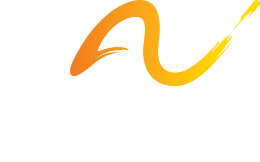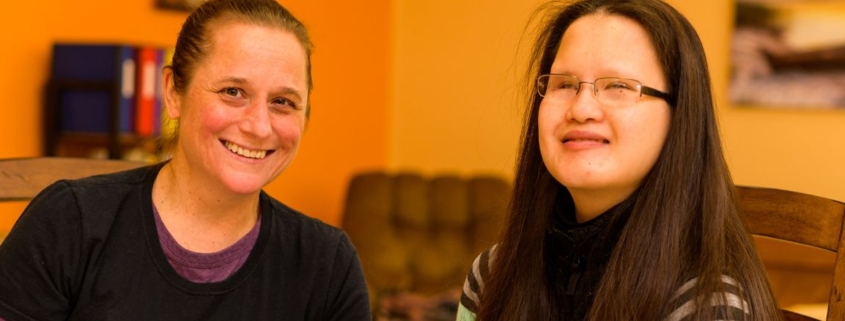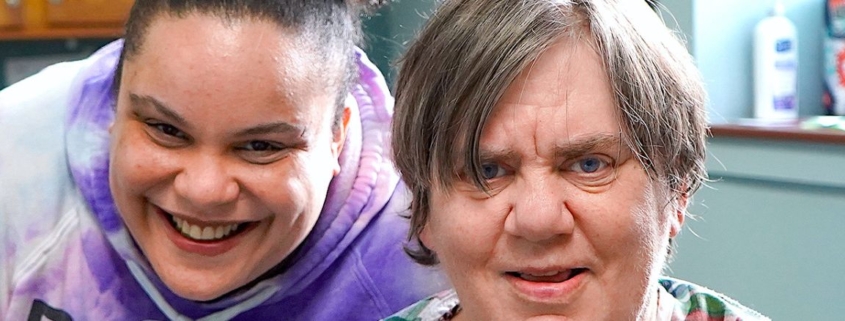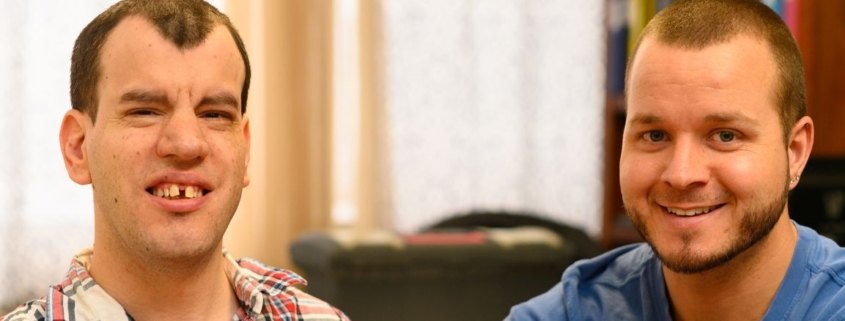Basic and applied research on the causes, challenges and treatment of intellectual and developmental disabilities, as well as research on interventions and services which could improve the lives of people with intellectual and/or developmental disabilities, must be adequately financed, well designed, focused on relevant topics, conducted with the highest ethical standards, presented in formats accessible to multiple audiences, and have a positive impact on people’s lives.
Issue:
Between 1% and 3% of persons in the general population are estimated to have some degree of intellectual disability and/or developmental disability. The exact number of people affected by intellectual and/or developmental disabilities is unknown, because individuals with intellectual and/or developmental disabilities cover a wide range of conditions, many of which are diagnosed several years after birth.
A variety of government agencies are responsible for undertaking vital research and data collection activities regarding the impact of disability and to improve the quality of life for children and adults with intellectual and/or developmental disabilities. Government and private funding is insufficient to support the broad research agenda that includes issues most important to people with intellectual and/or developmental disabilities and their families. Through basic and applied research, scientists and researchers can learn about causes of intellectual and/or developmental disabilities, address its preventable causes, improve the quality of life of people with intellectual and/or developmental disabilities and their families, and address policy and service-delivery enhancements. Researchers can identify the most promising educational, social and clinical interventions that help people live meaningful lives.
Historically, most people with intellectual and/or developmental disabilities and their families have not had input into the design, methodology, dissemination, use, and evaluation of research. Moreover, most research results have not been presented in ways which are accessible, understandable and useful for multiple audiences, including people with intellectual and/or developmental disabilities and their families.
While clinicians play an essential role in the evaluation and treatment of associated medical conditions and preventive care, and in facilitating and coordinating consultative services and community-based care, their awareness of the latest research findings and standards of integrated care vary, often leaving it to families to advocate and become the point of integration for their loved one. In addition, recent studies unknown to many (including clinicians), and in particular the availability of agnostic techniques such as genome-wide association studies, have identified new variants in a variety of genes which contribute to the risk of individuals with intellectual and/or developmental disabilities.
Advances in medical and behavioral science and research that relates to intellectual and/or developmental disabilities can be of great interest and benefit to individuals, their families, guardians and services providers.
In turn, science & research organizations can benefit from broad awareness of these individuals and their
families, however these organizations often have limited knowledge of or connection to these individuals and their families and vice versa.
It is the position of The Arc New York that:
- Government and private entities must provide adequate funding to support research on individuals with intellectual and/or developmental disabilities;
- The Research priorities set by funding sources, public policy-setting bodies, and academic and professional associations must reflect the research needs and interests of people with intellectual and other developmental disabilities;
- Advances in medical/behavioral research which can provide for an earlier diagnosis (and potential treatment) of individuals with intellectual and/or developmental disabilities and/or the associated symptoms will allow for early intervention and better clinical management, thus improving the quality of life of the individuals and their families;
- In addition to causation and prevention research, priorities must promote and encourage basic and applied studies that focus on and help to enhance the quality of life for people with intellectual and other developmental disabilities;
- In parallel policies, practices and supports for people with intellectual and/or developmental disabilities must keep pace with developing knowledge. Promote translation of research findings into practice;
- Data based studies using relevant criteria, must be used to assess the effectiveness of a program or service in achieving its desired outcomes, and/or to compare the relative effectiveness of alternative programs or services;
- The Research must identify and support practical applications to address the daily needs of people with intellectual and other developmental disabilities and their families. Researchers must also consider the cultural, ethnic, racial, geographical and other differences that affect people’s access to and ability to
benefit from programs and services designed to serve them; - Disability status should be incorporated in federally funded research;
- Advocacy, services providers and professional organizations, government agencies, the research community, and people with intellectual and/or developmental disabilities and their families must work together in defining, evaluating, and promoting a research agenda;
- Research on emerging interventions within properly regulated clinical trials and ensure must ensure that people with IDD are not excluded from benefitting from effective healthcare, and that those who can give informed consent are not categorically excluded;
- Results of research must be available in multiple formats, easily accessible and understandable for a wide audience, including people with intellectual and/or developmental disabilities and their families;
- Stringent scientific and ethical standards must be enforced to safeguard individual dignity, protect confidentiality, ensure efficient and effective use of research funds, and prevent exploitation or harm of people with intellectual and/or developmental disabilities and members of their families;
- For all basic and applied research involving persons with intellectual and/or developmental disabilities:
- Specific procedures must be implemented to ensure full voluntary, informed, initial, and ongoing agreement and consent to participate
- All research must be conducted by qualified researchers, in adequately monitored settings and reviewed for potential risk and benefit by qualified, competent scientific review boards
- Persons with intellectual and/or developmental disabilities should not be excluded from research that might benefit them as members of the general population
- Entities involved in conducting and financing basic and applied research should ensure that policies and standards with specific guidelines and safeguards are in effect to protect persons with intellectual and/or developmental disabilities and their families
- The ethical use of data and computerized forms of analytical computations must be overseen and guaranteed by federal, state, educational, and other entities involved with research
The Arc New York is committed to identifying and promoting research-based best practices, setting high standards for direct services and measuring outcomes.














